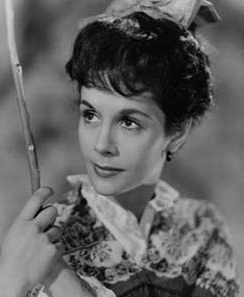Related Research Articles

Primer amor, a mil por hora is a Mexican telenovela produced by Pedro Damián for Televisa in 2000. It is a remake of another Televisa telenovela titled Quinceañera. This teen-oriented soap was one of the highest-rated in its time slot.

Delia Amadora García Gerboles better known as Delia Garcés was an Argentine film actress of the Golden Age of Argentine Cinema (1940–1960). She made almost 30 appearances in film between 1937 and 1959 and acted on stage from 1936 to 1966. She won the Premios Sur Best Actress award three times from the Argentine Academy of Cinematography Arts and Sciences, as well as the Argentine Film Critics Association's Silver Condor Award for Best Actress, the Premios Leopold Torre Nilsson, Premio Pablo Podestá, and the inaugural ACE Platinum Lifetime Achievement Award from the Asociación de Cronistas del Espectáculo.

Eduard Fernández Serrano is a Spanish screen and stage actor. He is the recipient of numerous accolades, including three Goya Awards and four Gaudí Awards.

Marisol is a Mexican telenovela produced by Juan Osorio for Televisa in 1996. Telenovela is a remake of the 1977 Mexican telenovela Marcha nupcial. Famous and beloved Enrique Álvarez Félix died after he finished his work in Marisol.

El derecho de nacer is a Mexican telenovela produced by Carlos Sotomayor for Televisa. It aired on Canal de las Estrellas from February 5, 2001 to May 25, 2001. It is a remake of the popular 1981 telenovela of the same name.
The second annual Altazor Awards took place on March 26, 2001, at the Teatro Municipal de Santiago.

Simplemente María is a Mexican telenovela produced by Valentín Pimstein for Televisa in 1989.
Día de muertos, also known as Día de difuntos and Los hijos de la guayaba, is a 1988 Mexican comedy-drama film directed by Luis Alcoriza. It is Alcoriza's penultimate film as director and his last one made entirely in Mexico; his last film directed, La sombra del ciprés es alargada, was a Mexican-Spanish co-production.
Brave Pigeon is a 1961 Mexican film directed by Rogelio A. González with Rosita Quintana, Miguel Aceves Mejía and Sara García.

Heart's Decree, is a Colombian telenovela created by Mónica Agudelo Tenorio and adapted for television by Felipe Agudelo. It is dedicated to the memory of Agudelo after her death in 2012. It started airing on Colombian broadcast channel RCN Televisión on November 28, 2016. The series is available in 4K Ultra-high-definition television.

La gloria de Lucho is a Colombian telenovela written by Juan Andrés Granados and produced by Sony Pictures Television and Teleset for Caracol Televisión, based on the life of ex-councilman Luis Eduardo Díaz. Its official premiere was on February 11, 2019 and stars Enrique Carriazo and Verónica Orozco. The show ended on June 7, 2019.
Bésame En La Boca is a 1995 Mexican romance and fantasy film directed and written by Abraham Cherem and Ricardo Del Rio, and produced by Humberto Zurita and Christian Bach. The film stars Latin pop singer Paulina Rubio, actors Charlie Masso, Fernando Colunga, Delia Casanova, Dolores Beristáin, and Leonardo García. The film was produced by Televicine and released on June 23, 1995 in Mexico. The plot centers on one young girl as she take an ancestral travel and changes body, finding herself and real love in the process.
El charro del misterio is a 1980 Mexican drama mystery action musical film directed by José Juan Munguía and starring José Martín, Alicia Juárez, Julio Aldama, Alfredo Gutiérrez, Beatriz Adriana and Alfonso Munguía. It is based on a story by Julio Tena.
Nora la rebelde is a 1979 Mexican comedy film directed by Mauricio de la Serna and starring Olga Breeskin and Andrés García.
Amor a la medida, also known as El sastre, is a 1993 Mexican musical romantic drama film directed by Raúl Araiza and starring Los Tigres del Norte. It features a plot based on the 1950 Mexican film Vagabunda.
Del otro lado del puente is a 1980 Mexican musical drama film directed by Gonzalo Martínez Ortega and starring Juan Gabriel, Valentin Trujillo, Lucha Villa, Julio Alemán, Estela Núñez, Narciso Busquets and Ana Laura Maldonado. The story concerns a Mexican who is attracted by stories of unlimited opportunities in the United States, but once he arrives to the country faces a harsh reality, but is nonetheless determined to succeed.

Fernando González Molina is a Spanish film and television director.
Pero sigo siendo el rey is a 1988 Mexican musical drama film, directed by René Cardona Jr. and starring Leonardo Daniel, Jorge Ortiz de Pinedo, Lourdes Munguía, and Sonia Infante. The film is a biopic that portrays the life of Mexican singer-songwriter José Alfredo Jiménez, and its title comes from Jiménez's song "El Rey".

La mujer del diablo is a Mexican streaming television series produced by W Studios for TelevisaUnivision. It premiered on the streaming service Vix+ on 21 July 2022. The series stars Carolina Miranda and José Ron. The second season premiered on 18 October 2022.

Roy del espacio is a 1983 Mexican animated science fiction film produced and directed by Hector López Carmona, Rafael Ángel Gil and Ulises Pérez Aguirre. Produced from 1979 to 1982, it is one of the first feature-length Mexican animated films ever made. Its plot follows the titular Roy, who, along with Dr. Faz and psychologist Elena, travels to a distant planet and faces an evil emperor who wants to conquer the Earth. Roy del espacio premiered on 3 March 1983, playing in several theatres in Mexico.
References
- ↑ Amador, María Luisa; Ayala Blanco, Jorge (2006). Cartelera cinematográfica, 1980–1989 (in Spanish). UNAM. p. 69. ISBN 970-32-3605-7.
- ↑ Díaz, Sergio (2008). Historia de la producción cinematográfica mexicana, 1979–1980 (in Spanish). Vol. 2. Universidad de Guadalajara. p. 255. ISBN 978-970-27-1400-2.
- ↑ García, Gustavo; Coria, José Felipe (1997). Nuevo cine mexicano (in Spanish). Editorial Clío. p. 17. ISBN 9789686932690.
- ↑ Dallal, Alberto (2007). Miradas disidentes: géneros y sexo en la historia del arte (in Spanish). Universidad Nacional Autónoma de México, Instituto de Investigaciones Estéticas. p. 232. ISBN 978-970-32-3195-9.
- ↑ Miranda López, Raúl (2006). Del quinto poder al séptimo arte: la producción fílmica de Televisa (in Spanish). CONACULTA/Cineteca Nacional. p. 10. ISBN 970-99-6104-7.